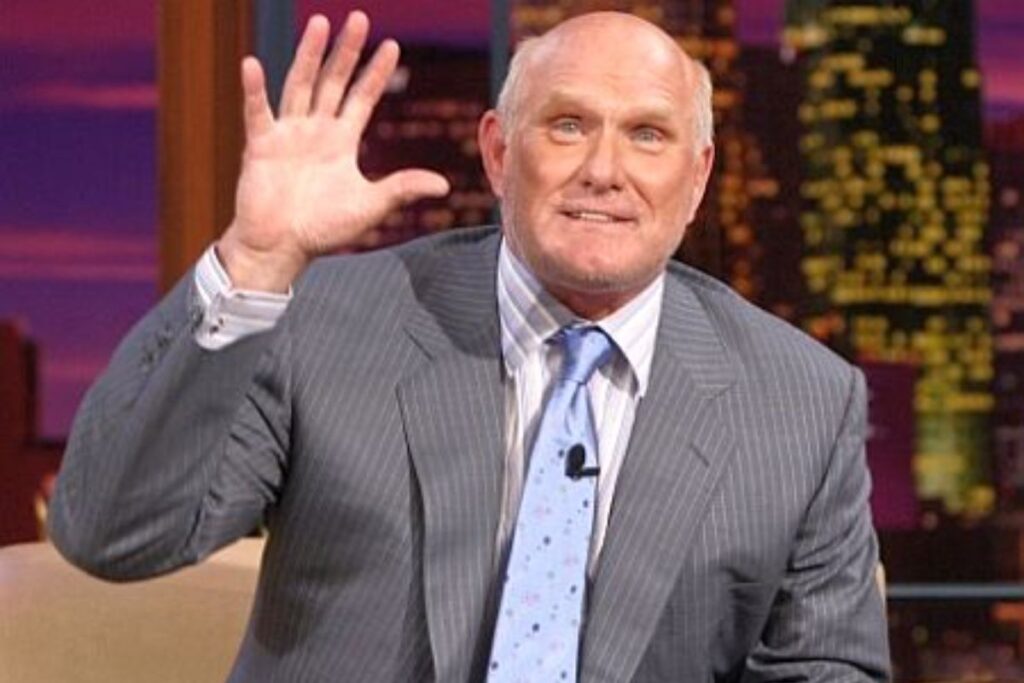To those who follow the National Football League, Terry Bradshaw is a name that needs no introduction.
Bradshaw played quarterback for the Pittsburgh Steelers from 1970 through 1983 after being drafted first overall in the 1970 NFL Draft out of Louisiana Tech. Four Super Bowls were won by his teams in a span of six years.
In addition, Bradshaw guided his squad to eight AFC Central titles under his leadership. He was named Most Valuable Player in the Super Bowl twice, made it to the Pro Bowl three times, and entered the Hall of Fame in his first year of eligibility (1989).
Clinical depression affects Terry Bradshaw as well. His diagnosis came in the year 1999.
To maintain a healthy serotonin level in his brain, he takes medicine.
Have always loved Terry Bradshaw for being the good ole southern boy that he is, but him being open about depression and mental illness just put him even higher on my list. Thank you sir pic.twitter.com/chndtbdgOW
— Corey Ryan Forrester First of His Name (@CoreyRForrester) February 3, 2022
“Serotonin levels in the brain are unbalanced in people with clinical depression, and this likely won’t be corrected in the foreseeable future. This requires me to reestablish a healthy equilibrium with the use of medication. I anticipate needing to take it forever.”
To put it simply, he has company.
Depressive disorders affect about 20 million American adults each year, with women nearly twice as likely to be affected as men, as reported by the National Institute of Mental Health.
Examples of such conditions are clinical depression (also known as major depressive disorder), dysthymia, and manic-depressive disease. In the United States, major depressive disorder is the primary cause of disability.
Bradshaw argues that mental health issues like depression should be treated medically. “In a positive turn of events, there are effective drugs available. Observe me. My constant good mood makes it hard for others to believe that I suffer from depression.”
After retiring from the NFL (a topic for another story), Bradshaw was able to speak openly about his struggles with clinical depression. As he explained, he often had panic episodes following games.
When Terry went through his third divorce in 1999, things got even worse. Instead of recovering from his despair like he had from his two prior divorces or a bad game, he was stuck in a downward spiral.
That moment of “no control,” as I call it, can come at any time for those with mental illness. When I was a freshman in high school, I started to spiral out of control. Though Bradshaw experienced it much later than I did, the pain is still very real for him.
Bradshaw’s breakdown was characterized by a decrease in his weight, more sobbing, and an inability to sleep. His symptoms subsided considerably when he began taking the antidepressant Paxil.
• A lack of control, apathy, and a sense of futility
• Anhedonia, or a lack of interest or pleasure in pleasurable activities (including s*x)
• Weakness and/or exhaustion
Lack of focus, memory loss, and indecision
Trouble sleeping or staying asleep for long periods of time
• Alterations in appetite, resulting in either a loss of weight or an increase in weight
• Suicidal ideation and behavior
“It’s hard for me to put into words the horrible feeling of being depressed,” the Hall of Famer has remarked about his struggles with depression. It’s the worst sensation ever to think you’re miserable and all by yourself.
Before getting a proper diagnosis for his depression, Bradshaw turned to alcohol as a means of self-medicating.
Bradshaw says of his drinking, “I was drinking a lot, and I didn’t like the path I was on.” “What may have happened scared me a lot. It was possible that I would drink myself to death, but I wasn’t sure.”
It was a clergyman that Bradshaw confided in and who provided him with his first real sense of direction. He took the first steps toward enlisting the aid of trained specialists (therapists, psychologists, etc.).
Readers should be aware that there is no one “magic bullet” treatment for mental illness. In addition to medication, talk therapy is a powerful resource for helping people with depression manage their emotions and move forward in healthy ways.
Despite the fact that depression is the second-most disabling condition worldwide, far too few people get treatment for it. Following Terry’s motivational lead, I’ve taken charge of my recovery from bipolar and borderline personality disorders. This is challenging for Bradshaw and me, and for anyone dealing with mental illness.




